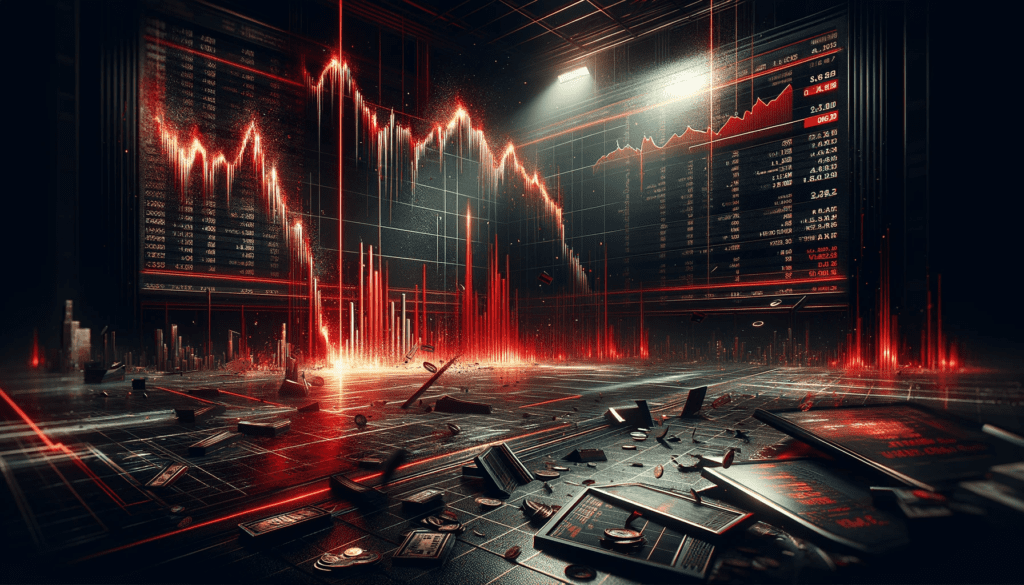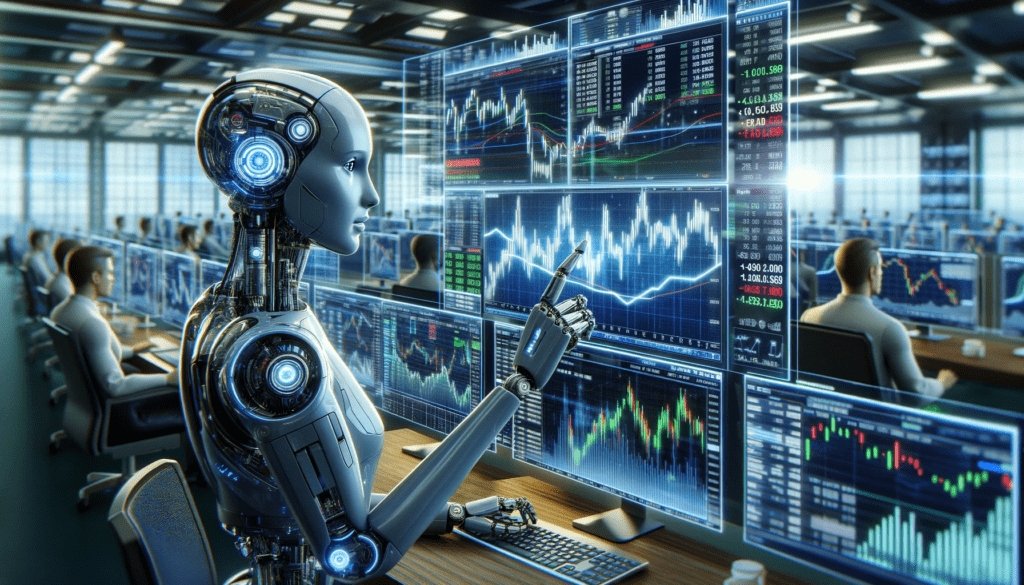Table Of Content
The uprise of AI into stock market trading has revolutionized how trades are made and strategies developed. Indeed, as a tool of competitiveness, banks and hedge funds currently deploy artificial intelligence with increasing frequency, shifting away from conventional decision-making heaved by humans. The topic that will be further discussed in this article is what AI trading is and the implications of AI Trading in the way it is used in stock trading, focusing on the usage of such technologies by global banks and hedge funds, as well as its potential to eventually impact retail investors.
AI Trading in Global Banks and Hedge Funds
While computers and algorithms have long been used by banks to execute trades, recent development has distinctly turned towards AI and machine learning technologies. For instance, Goldman Sachs has recently invested in the AI platform Kensho, which deploys machine learning in combing market data points for correlations and arbitrage opportunities. Similarly, hedge funds like Aidyia unleash AI in interpreting sentiments from news articles and social media, evolving trading strategies sans human intervention.
The Double-Edged Sword of AI Trading
Despite increased deployment into trading, the technology is still in its infancy, with some high-profile failures. For instance, an AI-managed fund of Sentient Investment Management was wound down two years after taking on board private investors due to poor performance against the market. This underlines the risks and challenges involved with AI-powered trading strategies.
Potential for Market Manipulation Against Retail Users
Perhaps the biggest problem with AI trading is that it provides the very real potential to manipulate the market to one’s disadvantage. Where institutional traders are in a position to apply this AI-powered approach, they can gain a substantive-and probably unfair-advantage, distort market forces to their advantage, and eventually cause retail sector losses and a financial opportunity gap between institutional and retail investors. By talking to friends, I hear that most of them made a loss from investing in the stock market, which has further gone up over the years.

Advantages and Concerns
While AI trading offers efficiency and the possibility of better decision-making, many exchanges, including NASDAQ, have remained very skeptical due to these concerns about reliability and possible misuse. The retail traders are not given the same opportunities that the institutional investor has; this is increasing the gap and financial exclusion within the trading world.
Generative AI Revolution in Stock Trading
Generative AI is definitely acting as a game changer, other than conventional AI applications in stock trading. Generative AI involves algorithms that can generate new data points, simulate scenarios, or predict future market trends from available data. This is particularly helpful in stock trading because it simulates innumerable market scenarios, sometimes even predicting the outcomes, which helps proper decision-making from traders and investors.
AI trading, more commonly known as algorithmic trading, is the process by which financial markets conduct trades in financial markets through the use of computer algorithms. In this algorithm, large quantities of data are considered that include past movements in prices, market trends, and economic indicators to identify patterns; these would then determine when a trade should be made.
Generative models analyze historical market data, news events, economic indicators, and even social media trends to predict the movement of markets. This advanced predictive capability enables traders to test a wide range of strategies in a simulated environment that replicates all kinds of market conditions before putting them into production, thereby minimizing risks and enhancing the chances of successful trades. In addition, generative AI creates detailed and realistic market models that enhance understanding of complicated market dynamics and allow traders to make much better decisions.
Generative AI derives its power from the ability to learn from vast amounts of data and recognize patterns and correlations that might well be invisible to human analysts. This can give very valuable insights into market behavior, asset price movements, and possible investment opportunities. One thing that can be said, however, is that while generative AI indeed brings enormous opportunities, it is a two-sided coin. The question will surely be raised of market fairness when such powerful tools are available to only a select few and probably create an unfair playing field in the stock market.

The integration of AI in stock market and forex trading by banks and hedge funds represents a significant shift in financial strategy. But the possibility of market manipulation, leaving retail traders far behind with such advanced tools, raises many critical questions of ethics and fairness. These challenges must be addressed by regulatory bodies and market participants as AI continues to reshape the face of trading practices-to be assured of a level playing field for all investors.
FAQ:
Q1: How are AI and machine learning being used in stock market trading? AI and machine learning create sophisticated trading algorithms that analyze numerous market data points, interpret news and social media sentiment, and create strategic trading decisions with very little human intervention.
Q2: Have there been any notable successes or failures in AI trading? Yes, big successes include an investment from Goldman Sachs into Kensho, but colossal failures include the liquidation of the AI-managed Sentient Investment Management.
Q3: Can AI trading give institutional traders an unfair advantage over retail traders? The answer is yes; through access to the right AI-powered tools and insights, the institutional traders may well manipulate the market to their advantage, leading to losses in the retail sector, therefore increasing the gap between the institutional and the retail traders.
Q4: Why are some exchanges hesitant to adopt AI-powered trading tools? Exchanges like NASDAQ are rather skeptical about adopting AI-powered trading tools, as these tools raise concerns about their reliability and the possibility of misusing such tools for market manipulation and financial exclusion of retail traders.
Q5: What is the future outlook for AI in stock market trading? The future of AI in trading is promising but also complex, as developments and innovations are still evolving alongside ethical, regulatory, and fairness-related challenges yet to be overcome.

